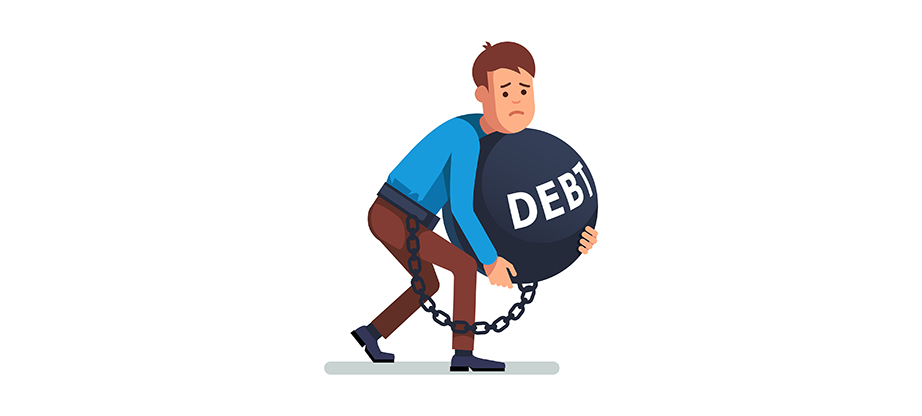Dealing with Debt Collectors Harassment
The practice of harassing people for money by debt collectors is becoming more common. This behavior may take several forms, such as repeatedly calling someone without letting them know or harassing someone online in some other way. In the United States, dealing with debt collectors is a common practice, and the calls they make may be rather irritating. This is because debt collectors are working on getting payments from those whom they feel owe money.
Sometimes they will do this by calling them and attempting to get them to discuss their debt with them or by attempting to convince people to pay back the money that they owe. They may sometimes attempt to accomplish this goal by writing them letters or showing up uninvited at their houses. They will often accomplish this by contacting individuals at times when they are not expecting a call from that person. There’re some things you can do to help protect yourself from debt collectors’ harassment.
Be Sure to Have Your Debt Paid Off as Soon as Possible
This will help avoid any future collection attempts from debt collectors. Debt collectors can be a very persistent and harassing force in your life. They will often bombard you with calls and letters, trying to pressure you into paying your debt. If you can’t pay your debt, debt collectors can take many different actions to collect it, including filing lawsuits and garnishing your wages. This can cause great financial hardship and make it difficult to get ahead.
One way to avoid this situation is to settle your debt. This will usually mean paying off the debt with a lump sum of money rather than paying it off over time. This will avoid the collection efforts of the debt collector and will usually result in a decrease in the amount you owe.
Hire an Attorney
It is vital for you to consult an attorney if you are having trouble paying your debt and are getting threatening phone calls or letters from debt collectors. An attorney may assist you in gaining a better understanding of your legal rights and in protecting yourself from the harassment of debt collectors.
In addition to that, make sure that your information is constantly up to date. This will assist them in not calling you an excessive amount and will also make it simpler for them to locate any old bills that you may owe.
Be Aware of the Types of Debt Collectors
Some collectors may be hired by debtors to try to collect money they have already paid or have not yet paid. Other collectors may be hired to try to collect money from you for debts you have not even incurred.
Do Not Give Away Your Personal Information
People who are vulnerable, such as those who are currently battling to make ends meet, are more likely to face debt collector harassment since they are easier prey. Do not provide any personal information to debt collectors, including your name, address, or phone number. This could make you a target for harassment. There are a few different things that you need to stay away from doing if you do not want to allow a debt collector to have access to your personal information.
- A debt collector should not have access to any personal information about you, including your email address, phone number, or address. Because of this, they could get in touch with you despite the fact that you don’t owe them anything.
- Do not give a debt collector any reason to believe that you would comply with any of the services that they want in order to get payment from you. This might involve supplying them with your personal information, allowing them access to your credit record, or assisting them in bringing a lawsuit against you in order to get financial compensation from you.
- A debt collector should not have access to your financial information or credit card details at any time. It is possible that as a result of this, they may ask you for more money in order to get your money or card details.
Don’t Make Decisions Until You Have a Conversation with Debt Collectors
Do not make any decisions about your debt until you have had a conversation with a debt collector. This will help to avoid any possible harassment.
Don’t Hesitate to Report It to Your Local Police
If you have experienced harassment by a reported debt collector, or if you think someone may be harassing you, you should report it to the IRS or the police.
Don’t Be Afraid to Tell Your Friends and Family About the Collectors
Informing your friends and family about debt collector harassment will help you protect yourself from being targets of collectors. When a debt collector tries to contact your family, it can be difficult to know what to tell them. Here’re some tips to help you tell your family about debt collector harassment:
- Be aware of the types of debt collectors who may be contacting you and what their goals may be.
- Be open with your family about your debt.
- Let them know that you are not comfortable with the debt collector contacting your family and that you would prefer not to be contacted by them in the future.
- Inform them that you may have a right to have the debt collector removed from your account.
- Let them know that you may also have a right to receive a refund or a discount on your debt.
Dealing with Debt Collectors – Conclusion
This article discusses the various ways that debt collectors can harass consumers. If you are being harassed by a debt collector, you have the right to report them to the police or IRS. This article provides well-detailed information on what to do if you are facing debt collectors’ harassment.


